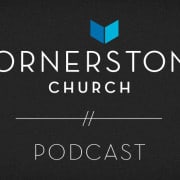The composition of the Psalms may be the most loved book of the entire Bible. New Testament writers certainly loved the composition of these emotionally and intellectually stimulating canticles. A modern commentator says, “Every Psalm seems to have my name and address on it”. He is not alone.
The Psalms are timeless pieces of encouragement that can be easily applied and have been used in thousands of hymns and songs. Millions have drawn inspiration from them. A large number of Christians faithfully read a Psalm a day. And this is part of the original intention.
The Psalms are accessible and ready to apply and use. Unlike prophetic books like Isaiah or Ezekiel, the Psalms are difficult to abuse through bad interpretation. They can be of more value than a little light reading in the morning. They are incredibly deep and challenging. They deal with almost every human emotion possible and present an answer to each of them in turn.
The Hebrew title means ‘praises’ and the Greek word means ‘to praise’ or ‘to pluck’. These are songs, mantras and pieces of truth that say, sing or shout out to God.
There is a lot of theology here but the message doesn’t come to us as though we are being urged or argued with. We are supposed to be convinced as we see people confess the truth about themselves and God. We are to be convinced that this is the right way to respond and think and be drawn to trust that the writer’s reality would become ours.
Considering their popularity, many an avid reader has surely noted that there are difficult to understand points. Getting a biblical message that is deeper than a few nice thoughts poses a fair difficulty. Most of the Psalms are without context and the thoughts expressed are hard to reconcile at times.
For example, consider Psalm 137:8-9:
O daughter of Babylon, doomed to be destroyed,
blessed shall he be who repays you
with what you have done to us!
Blessed shall he be who takes your little ones
and dashes them against the rock!
Aren’t we supposed to love our enemies? Who is a daughter of Babylon to us, exactly? It is these types of difficulties we will need to iron out.
Here is some help as you read the Psalms:
Getting ready to read the Psalms
The Psalms are Hebrew poetry. Hebrew poetry is rhythmical and takes on its meter not by syllables but by accents on Hebrews words. The poems are supposed to be seen as a whole. Their fundamental characteristic is not however flow or rhythm but the echoing of thought with another. This is termed ‘parallelism’. Regularly the second verse will enhance the first intentionally, saying almost the same thing.
For example, Psalm 103:10
“He does not deal with us according to our sins,
nor repay us according to our iniquities”.
Here are a few questions to answer before reading a Psalm:
1. How does this Psalm fit together with the others?
You will notice that there are different kinds of Psalms. There are lament Psalms (44, 74, 79, 80, 83, 85, 90); gratitude Psalms; royal Psalms; wisdom Psalms. People also group what are called ‘imprecatory’ Psalms. These are the Psalms that ask God to exercise judgement at the request of the writer. Each type of Psalm has a slightly different way of taking it as a whole.
2. What is the heading of this Psalm?
Please take careful note of the title. It is often the key to a deeper understanding and richer blessing. When you read “of David in the cave of Adullam” you will realise that his words are of such depth. What would you say if you were hiding in a cave?
3. What technical terms are being used and why?
When you read the list below you will realise there are quite a number of terms that we aren’t familiar with. The truth is that no one is that familiar with them. Considerable debate surrounds the exact purpose of some of these terms.
A few comments should help us be more familiar with what we are reading and why. All the following sentences should be filled with ‘probably’ even though not written: (definitions taken from Kidner)
Selah – it occurs 71 times. Used as an interlude or pause. Possibly to change instruments.
Haggaion – used to signal quiet instruments to be played and a time for meditation.
Psalm or Song – Songs are taken to be pieces that are used with music. Psalms may or may not be used with instruments.
Shiggaion – possibly denotes a poetic form designed to stir the emotions
Miktam – possible means ‘to cover’. The context of the Psalms it is used in could mean ‘a prayer uttered in silence’.
Maskil – could mean a ‘teaching Psalm’ but the Psalms it’s used with are not very technical. Could also mean to accompany a technical and difficult piece of music.
There is always more to know but hopefully this bit of background will help you. The Bible always becomes more real and exciting when you know as much of the background as you can.
Picture: Painting of Kern River Valley, California, USA by Old Master Albert Bierstadt.







